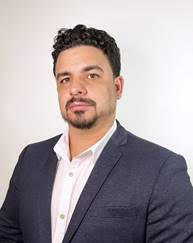 *By Paulo Guedes
*By Paulo Guedes
The large number of chronic conditions in Brazil has caught the attention of health professionals. It is estimated that 20 million Brazilians have diabetes, according to data from the Brazilian Institute of Geography and Statistics (IBGE) released by Brazilian Diabetes Society (SBD). Hypertension affects around 50 million people in the country between the ages of 30 and 79, according to the World Health Organization (WHO). Both situations, when not treated correctly, can be potential aggravating factors that increase the presence of heart disease in the population.
Given this context, it is essential that the healthcare sector adopt strategies that assist in the continuous monitoring of these cases. In this sense, one of the alternatives that can be applied is the promotion of humanized care, helping to strengthen the bond between the doctor and the patient, in order to obtain more significant results.
In Brazil, the Family Health Strategy (ESF) is one of the alternatives that corroborate this scenario. This is because, with a focus on the family and the community, the ESF aims to promote the prevention and treatment of chronic and acute conditions through a comprehensive and continuous approach. Therefore, health professionals regularly monitor people with diabetes, hypertension, among other cases, for example, providing precise and periodic guidance on performing exams, specific care and prevention, allowing both the doctor and the patient to have a clear and cautious view of the disease.
Shared decision making
As healthcare systems move toward more centralized care, collaborative decision-making between physician and patient will be increasingly beneficial to the success of care. One of the first steps to this is to establish a clear conversation with patients, identifying any challenges that may arise during their care journey, and analyzing the results together with a view to continuous improvement.
When it comes to heart disease, progress is directly tied to actions taken outside of the doctor’s office. In addition to monitoring and testing blood sugar and blood pressure, patients can make a number of lifestyle changes, including following a healthy diet, exercising, and managing stress.
Therefore, healthcare professionals need to find productive and concrete ways to stay engaged with patients to educate them and help them make the best choices for their self-care.
Technology as an ally in the treatment of cardiovascular cases
As part of the patient's health journey, it is essential that the entire clinical team is equipped with tools whose information is based on evidence, which guarantee positive impacts during all stages of treatment, especially in the case of heart disease. In this context, clinical decision support are essential to offer adequate support to healthcare professionals in making decisions during care.
By providing reliable information, these solutions help in more accurate diagnoses and prescriptions and, consequently, in greater effectiveness of the care provided. It is a fact that the growth of chronic diseases is something that should keep the health sector and society on alert. However, by combining innovation and humanized care, it is possible to pave a promising path that guarantees improved quality of life for people.
*Paulo Guedes is Account Manager at Wolters Kluwer Health in Brazil.
Notice: The opinion presented in this article is the responsibility of its author and not of ABES - Brazilian Association of Software Companies













